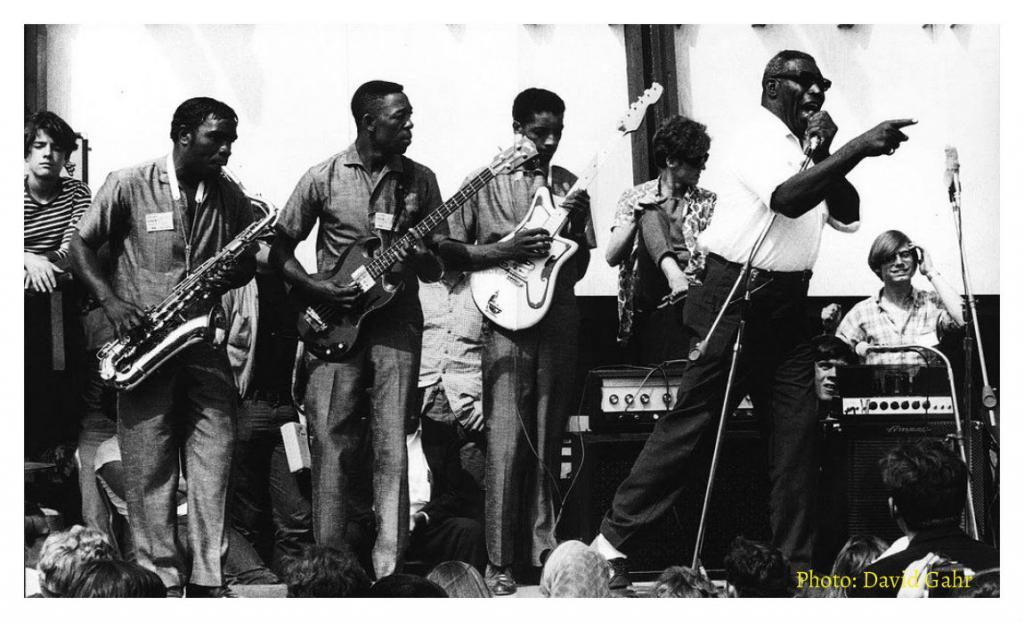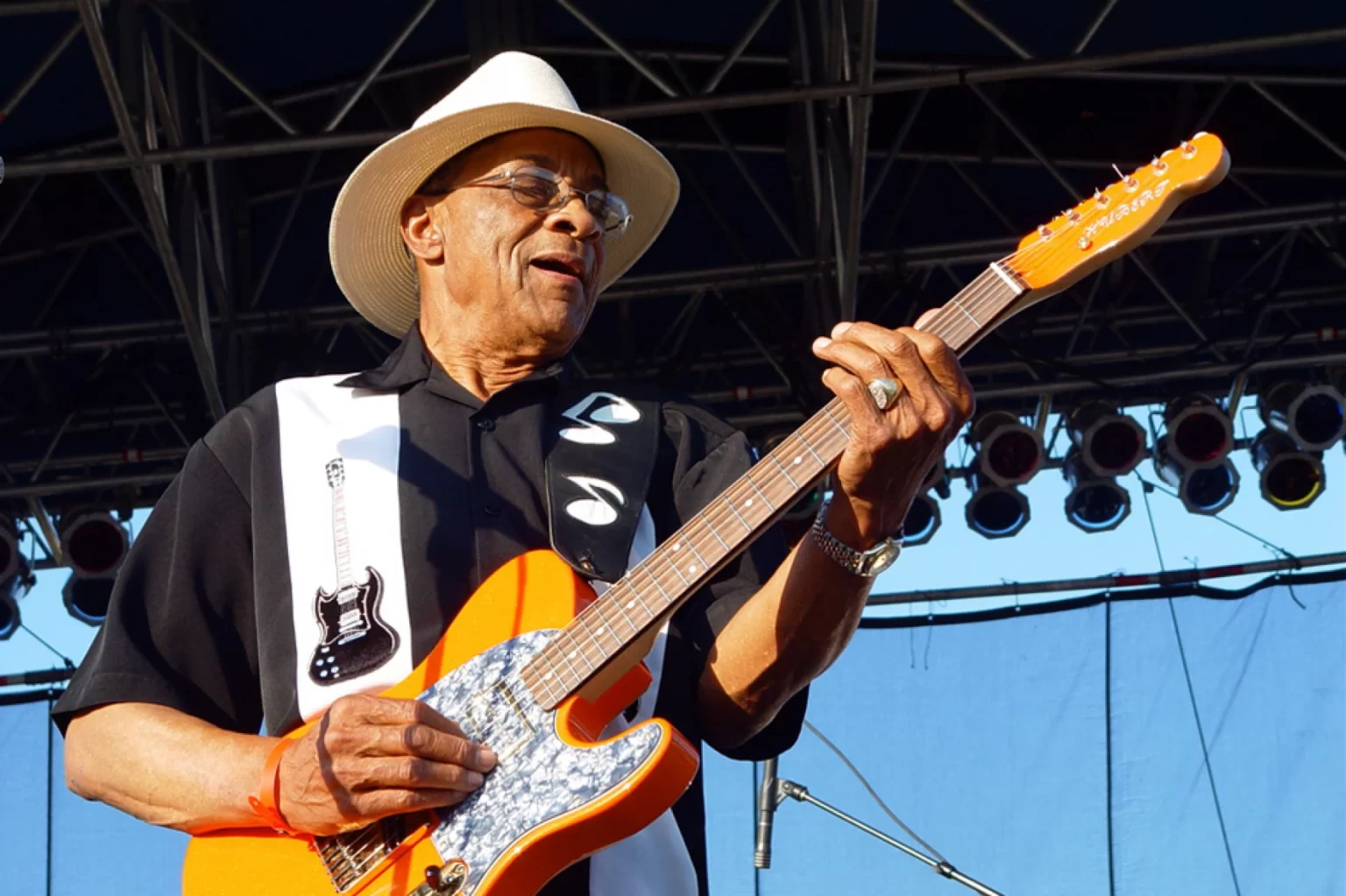When guitar heroes like Eric Clapton, Jimmy Page, Jeff Beck, and Robert Cray talk of Hubert Sumlin, inevitably, their faces break out in a huge smile. Any time Sumlin’s name comes up among musicians, everyone discusses his playing, basically summed up with Jimmy Page’s comment, “I love Hubert Sumlin. He always played the right thing at the right time.” After this discussion, almost without exception, everyone smiles and someone says, “Yeah, everyone loves Hubert.”
He was born Hubert Charles Sumlin on November 16, 1931 in Greenwood, Mississippi, but he was raised in Hughes, Arkansas. The future guitar hero began playing the instrument at eight years old. He first encountered Chester Arthur Burnett AKA Howlin’ Wolf as a youngster when he had snuck into a performance.
As a young man, Sumlin accepted Wolf’s invitation to come to come to Chicago and be his second guitar. When Jody Williams, Wolf’s lead guitarist left in 1955, Sumlin became the lead guitarist. Except for a relatively brief spell when he played with the great Muddy Waters, he was the main guitarist for Wolf for the rest of his career.

In The Illustrated Encyclopedia of Music, Paul Du Noyer describes Sumlin’s playing as “wrenched, shattering bursts of notes, sudden cliff-hanger silences and daring rhythmic suspensions.” Indeed, he was known for bursts of joy emanating assertively his fretboard, being barely contained in the listening space in which he was performing. His guitar expressions were boundless excursions into aspects of the blues vernacular that reached into a listener’s very heart, tugging its strings, and saying “Hello. That’s right; let it out. It’s gonna be alright.” Like Miles Davis, he also believed that silence was an instrument too, saying as much as the played notes.
Although the relationship with Wolf was a contentious one at times, he and Sumlin were friends, and had great respect for each other and each other’s abilities. “We were like father and son, although we had some tremendous fights. He knocked my teeth out, and I knocked his out. None of it mattered; we always got right back together.”
As Howlin’ Wolf was a link to past artists such as Robert Johnson, Sumlin’s work with him was cited as an inspiration by a whole new generation of artists including Eric Clapton, Keith Richards, Jimi Hendrix, Jimmie Vaughan, Robert Cray, and others.
Perhaps what so endeared Sumlin to everyone was his humility and sense of humor. Always ready to show players a new lick or two, he was just as eager to learn from them.
Inducted into the Blues Foundation Hall of Fame in 2008, Sumlin was nominated for four Grammy Awards between 1999 and 2010. He also earned several Blues Music Awards. Rolling Stone magazine ranked him number 43 in on their “100 Greatest Guitarists of All Time” list.
Hubert Sumlin left us on December 4th, 2011 at 80 years old. Even today, following in his steps on the fretboard is a necessary journey for any blues guitarist, especially one seeking to understand Chicago blues. His passing left a huge hole in the fabric of the music community that is still felt today, but his music lives and brings joy to all who hear it. Upon his passing, Mick Jagger and Keith Richards paid for his funeral expenses.
Of his playing Sumlin said, “When I’m reaching an audience, I feel it.” As to doing what he did, he summed it up like this: “Do anything you wanna do—but from [the heart]. Music is a thing from the heart, from the soul, just like anything else you do, man. And you can be the best, you can be what you wanna be. That’s right! You can do what you wanna do. I believe—I’m a blues player. I never been a millionaire, but let me tell you something—I think I am. Cause I got this. I’ve got what it take. And I don’t care if you don’t believe me, man, but I know you do. Because this is what it’s all about. Anything you do, if you wanna do it and you love it, you rich. You a millionaire, man.”

